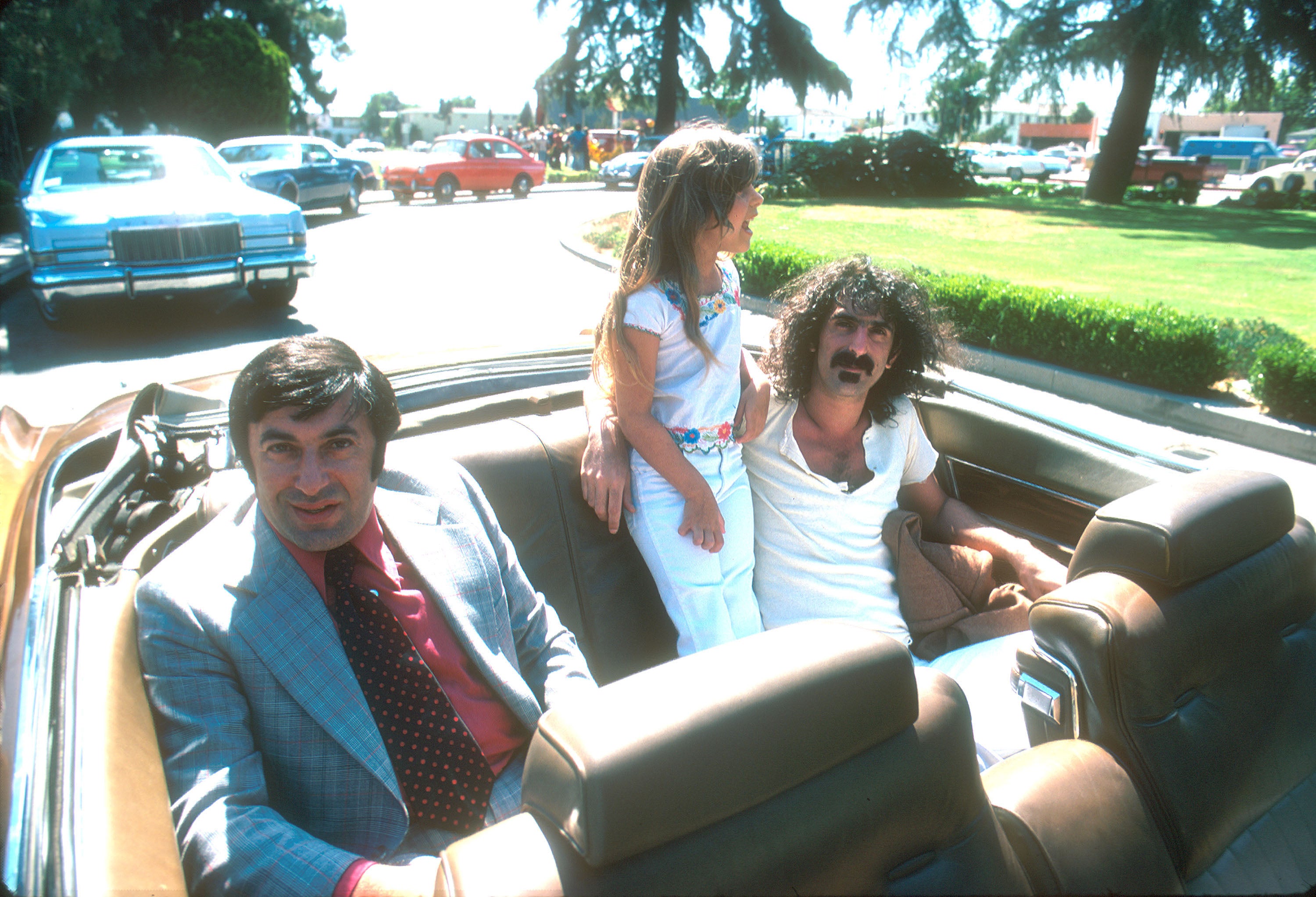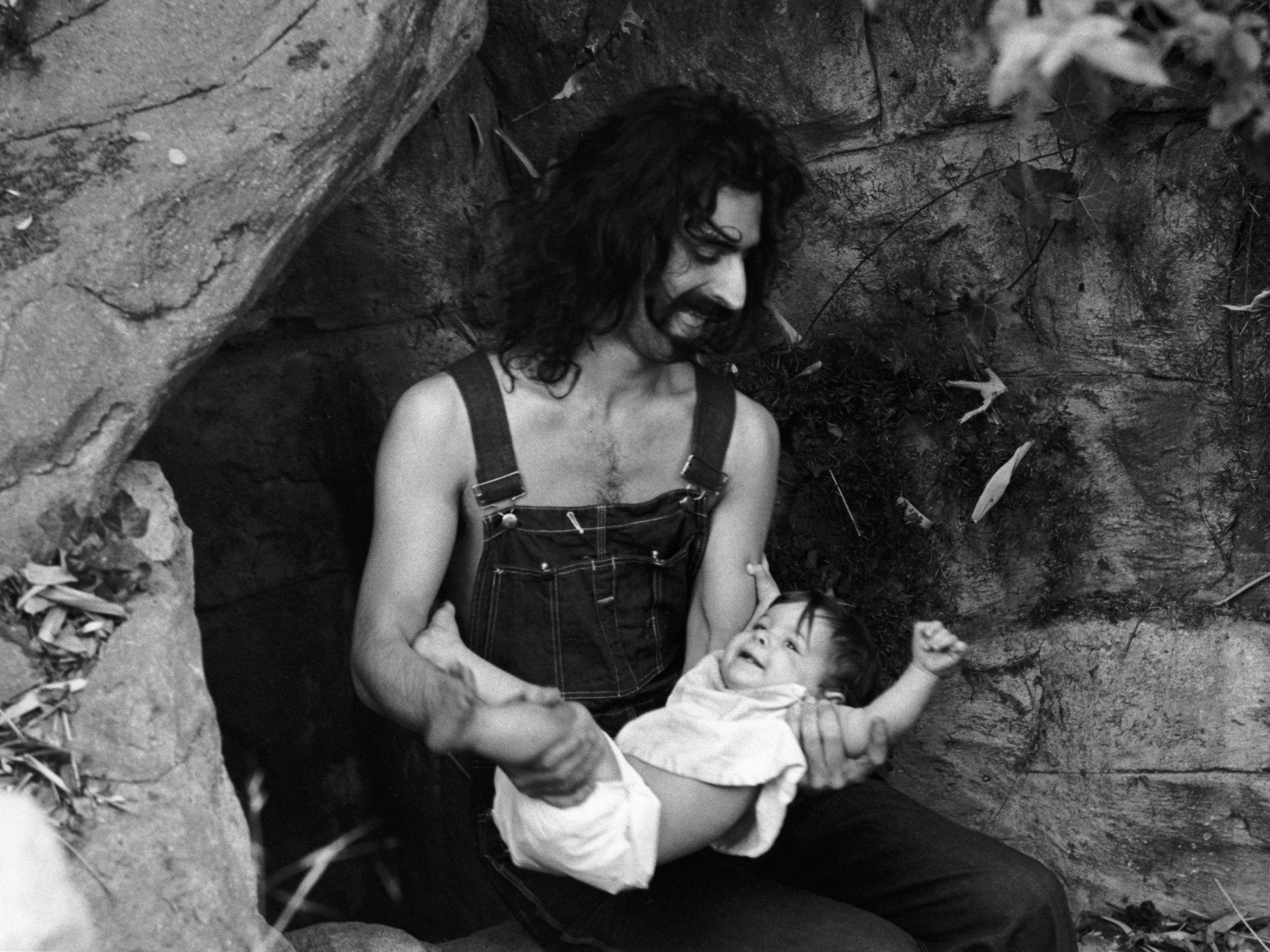ARTICLE AD BOX
Fame came early for Moon Unit Zappa, eldest daughter of legendary musician Frank and his wife Gail, though not by choice. Her unusual name, dreamt up by her dad – “Unit” supposedly signified their familial bond – meant everyone knew who she was from infancy. Her teens brought a fresh wave of celebrity which, she notes, “I also didn’t ask for.” A rare and spontaneous moment with her father in his home studio, during which he recorded her delivering a stream of exaggerated California teen-speak – “It’s, like, grody to the max!” – became the centrepiece of the novelty single “Valley Girl”. Released in 1982, it was Frank’s biggest hit and propelled a reluctant Moon, then an acne-ridden, desperately awkward 14-year-old, into the spotlight.
In her memoir, Earth to Moon, she recalls appearing alongside Frank on TV talk shows, including Late Night with David Letterman, where she quickly learnt that certain stories would get “a big reaction. Like the one about the Kiwi groupie moving in [to the family home]… or the unconventional parenting story about the time Gail handcuffed me and [younger brother] Dweezil together by the ankles, recorded our fight and played it back for us.” It was, she says now, “a confusing time”.
Moon, 57, is talking over Zoom from her living room in Los Angeles. She is terrific company: open, articulate and quick to laugh. During our hour-long conversation, she moves between dryly sanguine and palpably livid about her treatment by her narcissistic parents (along with Dweezil, she has two more siblings: Ahmet and Diva). Her book, out in paperback this month, is a wild read, both shocking and improbably funny as it catalogues life in their rambling home in Laurel Canyon, a place that was permanently under construction, rarely cleaned and had a painting of an orgy in the living room.
Childhood, we learn, was a time of deep anxiety and turmoil for Moon, whose name turned out to be the least of her woes. (Though she will say that Elon Musk’s outré names for children, which include X Æ A-Xii, prompted “a definite eye roll”.). As the eldest child, she was simultaneously devastated by her father’s lack of interest in his children and a hostage to her mother’s erratic moods. She recalls Frank waking her up one night and telling her: “Gail is on a rampage. I need you to hide the gun.”
And so while the writing process was occasionally cathartic, it was also painful as old wounds were reopened. “I had to remember that I was hatching a new me as I was going through this reliving of truly the worst experiences of my life,” Moon reflects. “At times, it really felt like I was falling through space.” Even the promotional process brings up complicated feelings. “I’ve been doing events, and people have this righteous anger on my behalf, and it’s like a wave of emotion hits me again. You go through life and put one foot in front of the other and then somebody says, ‘I’m so angry for you.’ And then you think, ‘Oh my God, it was worse than I even thought’.”

A celebrated musical maverick, Frank Zappa found fame in the early 1960s following an appearance on The Steve Allen Show during which he played a bicycle as a musical instrument. Later, he blended complex jazz and classical stylings with surreal storytelling on cult hits such as “Don’t Eat the Yellow Snow” and “Bobby Brown”, about a proud misogynist who contemplates raping a cheerleader. Frank was a self-confessed workaholic who released 62 albums in his lifetime – he died from pancreatic cancer in 1993 aged 52 – and inspired zealous devotion from his fans who hailed him as a creative genius. When he wasn’t away touring with his band The Mothers of Invention, he was ensconced in his home studio and determinedly keeping his family at arm’s length.
Mention of the G-word prompts a snort of derision from Moon. “There’s this strange dichotomy of my father being called a genius and the fact that he didn’t even make sure [his children] knew how day-to-day [life] worked. He didn’t invest in our educations or our futures. He didn’t even say, ‘How are you doing?’ to his kids. This is outrageous to me. If that’s what genius is about then, pah! No thank you!” Yet Moon acknowledges her father’s charisma and can see his appeal to those fortunate enough not to be his dependants. “To them he represented freedom, integrity, being civic-minded and speaking out against injustice. He spoke to the marginalised and the weirdos. I did observe it, and him, as being very meaningful to people. And they’re still rabid, the people that love him love him forever.”
Dad didn’t even say, ‘How are you doing?’ to his kids. This is outrageous to me. If that’s what genius is about then, pah! No thank you!
Among those devotees was Gail, a former model who made a brief foray into music with a Sonny and Cher spoof called “Bunny and Bear”, and who met Zappa while working as a secretary at LA’s famous Whiskey a Go Go nightclub. Gail declined to leave her husband despite her fury at his copious and flagrant philandering. Along with bringing lovers into the family home, Frank once took Moon and Dweezil on a trip to New York in their early teens to see the musical Cats. After the show, he installed the children in a hotel room with room service and disappeared. Later that night, Moon was woken up by a thumping sound in the room next door: it was her dad having sex with one of the show’s dancers. “The thing is,” Moon says, “he would cheat and say to Gail, ‘I always come back to you [all]. They don’t matter to me.’ But as a kid, the way I interpreted that was: ‘I would rather spend time with people I don’t care about than you, my own child.’ My brain was saying I was worth less than the thing that doesn’t matter.”
Little wonder that, by the time Moon reached her mid-teens, she was determined to leave home. At 17, using money she had earned from “Valley Girl”, and the sporadic acting jobs that followed (her credits include the crime series CHiPs and the sitcom The Facts of Life), she bought her first home. Once there, she recalls, “I literally just lay on the floor and stared at the ceiling because I had gotten out, but I didn’t know what to do with myself. It was like I had been serving jail time for something I didn’t commit, and then, on being released, not knowing how to be in the world.” She sought guidance from a spiritual guru, since “I was primed for subservience. I had been trained to want nothing and be nothing. Thank God that guru did not let me cut my hair off, become a renunciate and move to India. She told me: ‘You belong in the world’.”

In any case, Moon’s independence was to be short-lived. Not long after Frank was diagnosed with cancer in 1990, Gail paid her a visit and announced: “You cost us $200,000 to raise, so we need to sell your house to pay for your father’s cancer treatments because he has no health insurance.” Ever the pliant daughter, Moon sold up and moved back home.
After Frank’s death, she slowly found her way in the working world, making art, continuing to act and writing a semi-autobiographical novel, America the Beautiful, in 2001. The following year, Moon married Paul Doucette, from the band Matchbox Twenty, and they had a daughter, Mathilda (Moon and her husband divorced in 2014). Becoming a mother brought home just how little she had been mothered herself. “It was, like, ‘Wow, I’m giving from a place where there’s no map. I wasn’t taught how to do this.’ And so the wound got pricked again, because I couldn’t help thinking: ‘Nobody did this for me’.”
Asked why she waited so long to write about her parents, she replies: “Because I always thought it was Gail’s story to tell. Gail loved the music. Gail picked my dad as [a partner] and had a life with him.” But then she changed her mind. This was partly because “it became clear people had an interest in wanting to hear what it was like as his daughter”, but mostly because of her mother’s infamous will.

In 2015, Gail died from lung cancer, leaving behind massive debt just as her husband had. She also left the lion’s share of the Zappa estate to her younger children, giving Diva and Ahmet 30 per cent each and Dweezil and Moon 20 per cent. This put the younger siblings firmly in charge of all matters Frank, meaning they make the decisions about his legacy and trust, and are also set to receive a bigger share of any future profits (this despite Moon having cared for her mother in her final year). A decade of battles ensued between the Zappa children, often involving lawyers. Moon has since decided her mother did her a favour “though I don’t thank her for it”. Rather than managing the family business, she has spent recent years nurturing her own talents and career. “That’s literally what it took for my stubborn brain to understand ‘You have to invest in your own life.’ It was either become a casualty of this circumstance or take a chance on myself.”
And how is her relationship with her siblings now? “Well, Ahmet read the book and said he enjoyed it, so that was pretty wonderful. Dweezil is not talking to any of us at the moment, but Diva and I are making some good progress. I think part of that is because I have stopped hoping for the relationships to be Hallmark card-style relationships. I’m just letting them be what they are.” Moon now runs yoga and meditation classes and has her own brand of tea. She is also writing another book. “I’m giving fiction a try because for the first time in my life I’m able to leave the past in the past,” she says, smiling. “And you know what? It feels good.”
'Earth to Moon' by Moon Unit Zappa (White Rabbit) is released on paperback on 15 May









 English (US) ·
English (US) ·